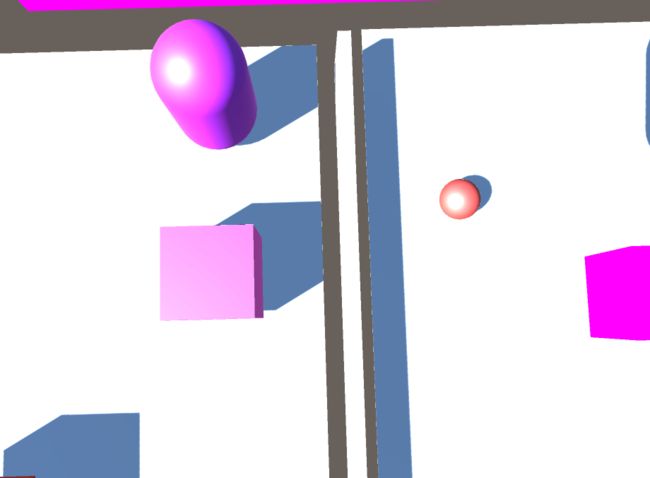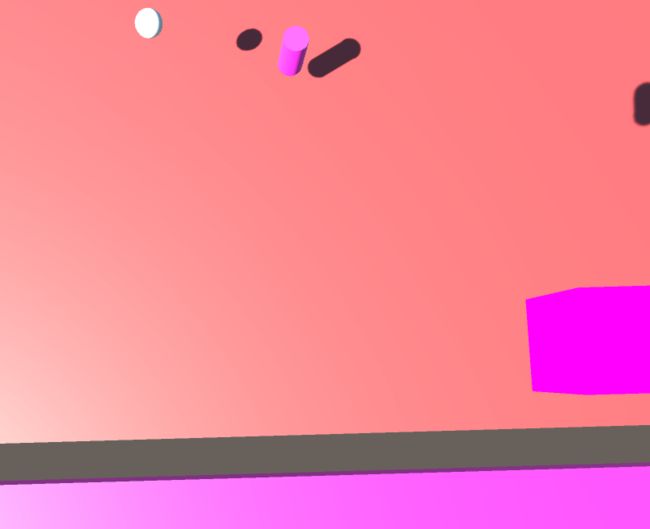本文章由cartzhang编写,转载请注明出处。 所有权利保留。
文章链接:http://blog.csdn.net/cartzhang/article/details/51055584
作者:cartzhang
一、Unity关卡
Unity 使用过程中关卡加载和卸载是大多数三维引擎都要提供的基本功能。
因为关卡切换在游戏中非常常用。
在之前的版本中Unity的关卡切换使用的是:
Application.loadedLevel()
看看Application类,此时这个类的功能比较繁杂,比较多。只看与关卡相关的:
[Obsolete("Use SceneManager.LoadScene")]
public static void LoadLevel(string name);
[Obsolete("Use SceneManager.LoadScene")]
public static void LoadLevel(int index);
[Obsolete("Use SceneManager.LoadScene")]
public static void LoadLevelAdditive(string name);
[Obsolete("Use SceneManager.LoadScene")]
public static void LoadLevelAdditive(int index);
//
// 摘要:
// ///
// Unloads all GameObject associated with the given scene. Note that assets are
// currently not unloaded, in order to free up asset memory call Resources.UnloadAllUnusedAssets.
// ///
//
// 参数:
// index:
// Index of the scene in the PlayerSettings to unload.
//
// scenePath:
// Name of the scene to Unload.
//
// 返回结果:
// ///
// Return true if the scene is unloaded.
// ///
[Obsolete("Use SceneManager.UnloadScene")]
public static bool UnloadLevel(string scenePath);
//
// 摘要:
// ///
// Unloads all GameObject associated with the given scene. Note that assets are
// currently not unloaded, in order to free up asset memory call Resources.UnloadAllUnusedAssets.
// ///
//
// 参数:
// index:
// Index of the scene in the PlayerSettings to unload.
//
// scenePath:
// Name of the scene to Unload.
//
// 返回结果:
// ///
// Return true if the scene is unloaded.
// ///
[Obsolete("Use SceneManager.UnloadScene")]
public static bool UnloadLevel(int index);这是之前的Application中的关卡的加载和卸载。
当然现在在新版本(Unity5.3以上)中,有了新的变化,那就是SceneManager类了处理。
二、Untiy的SceneManager类
自从Unity5.3版本,Unity 的关卡切换就添加了新的SceneManager的类来处理。
当然要安装过了Unity文档帮助,并且给下面路径一样,就可以知道在本地打开。
本地链接:
file:///C:/Program%20Files/Unity5.3.0/Editor/Data/Documentation/en/Manual/UpgradeGuide53.html
也可以在Unity中搜索SceneManager来查看。
#region 程序集 UnityEngine, Version=0.0.0.0, Culture=neutral, PublicKeyToken=null
// H:\Unity\UnityProject\ShiftLevels\Library\UnityAssemblies\UnityEngine.dll
#endregion
using UnityEngine.Internal;
namespace UnityEngine.SceneManagement
{
//
// 摘要:
// ///
// Scene management at run-time.
// ///
public class SceneManager
{
public SceneManager();
public static int sceneCount { get; }
//
public static int sceneCountInBuildSettings { get; }
public static Scene GetActiveScene();
public static Scene[] GetAllScenes();
// 参数:
// index:
// Index of the scene to get. Index must be greater than or equal to 0 and less
// than SceneManager.sceneCount.
public static Scene GetSceneAt(int index);
// 返回结果:
// ///
// The scene if found or an invalid scene if not.
// ///
public static Scene GetSceneByName(string name);
// Searches all scenes added to the SceneManager for a scene that has the given
// asset path.
// ///
//
// 参数:
// scenePath:
// Path of the scene. Should be relative to the project folder. Like: "AssetsMyScenesMyScene.unity".
public static Scene GetSceneByPath(string scenePath);
[ExcludeFromDocs]
public static void LoadScene(int sceneBuildIndex);
[ExcludeFromDocs]
public static void LoadScene(string sceneName);
// 参数:
// sceneName:
// Name of the scene to load.
//
// sceneBuildIndex:
// Index of the scene in the Build Settings to load.
//
// mode:
// Allows you to specify whether or not to load the scene additively. See SceneManagement.LoadSceneMode
// for more information about the options.
public static void LoadScene(int sceneBuildIndex, [DefaultValue("LoadSceneMode.Single")] LoadSceneMode mode);
// 参数:
// sceneName:
// Name of the scene to load.
//
// sceneBuildIndex:
// Index of the scene in the Build Settings to load.
//
// mode:
// Allows you to specify whether or not to load the scene additively. See SceneManagement.LoadSceneMode
// for more information about the options.
public static void LoadScene(string sceneName, [DefaultValue("LoadSceneMode.Single")] LoadSceneMode mode);
[ExcludeFromDocs]
public static AsyncOperation LoadSceneAsync(int sceneBuildIndex);
[ExcludeFromDocs]
public static AsyncOperation LoadSceneAsync(string sceneName);
// 参数:
// sceneName:
// Name of the scene to load.
//
// sceneBuildIndex:
// Index of the scene in the Build Settings to load.
//
// mode:
// If LoadSceneMode.Single then all current scenes will be unloaded before loading.
public static AsyncOperation LoadSceneAsync(int sceneBuildIndex, [DefaultValue("LoadSceneMode.Single")] LoadSceneMode mode);
// 参数:
// sceneName:
// Name of the scene to load.
//
// sceneBuildIndex:
// Index of the scene in the Build Settings to load.
//
// mode:
// If LoadSceneMode.Single then all current scenes will be unloaded before loading.
public static AsyncOperation LoadSceneAsync(string sceneName, [DefaultValue("LoadSceneMode.Single")] LoadSceneMode mode);
//
// 参数:
// sourceScene:
// The scene that will be merged into the destination scene.
//
// destinationScene:
// Existing scene to merge the source scene into.
public static void MergeScenes(Scene sourceScene, Scene destinationScene);
//
// 摘要:
// ///
// Move a GameObject from its current scene to a new scene. /// It is required that
// the GameObject is at the root of its current scene.
// ///
//
// 参数:
// go:
// GameObject to move.
//
// scene:
// Scene to move into.
public static void MoveGameObjectToScene(GameObject go, Scene scene);
//
// 返回结果:
// ///
// Returns false if the scene is not loaded yet.
// ///
public static bool SetActiveScene(Scene scene);
// ///
public static bool UnloadScene(string sceneName);
//
// 摘要:
// ///
// Unloads all GameObjects associated with the given scene. Note that assets are
// currently not unloaded, in order to free up asset memory call Resources.UnloadAllUnusedAssets.
// ///
//
// 参数:
// sceneBuildIndex:
// Index of the scene in the Build Settings to unload.
//
// sceneName:
// Name of the scene to unload.
//
// 返回结果:
// ///
// Returns true if the scene is unloaded.
// ///
public static bool UnloadScene(int sceneBuildIndex);
}
}注意的是这里面还有可以带对象来在关卡中移动的,还有穿越功能啊!!哈哈
三、5.3的实现代码
上代码:
/**************************************************************************
Copyright:@cartzhang
Author: cartzhang
Date: 2016-04-01
Description:加载关卡,可以分组加载和卸载。使用Unity版本为5.3.0.
因为里面使用了场景管理的一个类,这个类在5.3.0以上版本才添加的。
测试操作:使用空格键来切换场景,然后间隔5秒后才开始卸载。
**************************************************************************/
using UnityEngine;
using System.Collections;
using UnityEngine.SceneManagement;
[System.Serializable]
public class LevelOrder
{
[Header("每组关卡名称")]
public string[] LevelNames;
}
public class ChangLevelsHasMain : MonoBehaviour
{
[Header("所有关卡列表")]
public LevelOrder[] levelOrder;
private static int index;
private int totalLevels = 0;
private int levelOrderLength;
void Start ()
{
for (int i = 0; i < levelOrder.Length; i++)
{
totalLevels += levelOrder[i].LevelNames.Length;
}
if (totalLevels != SceneManager.sceneCountInBuildSettings)
{
}
levelOrderLength = levelOrder.Length;
}
// Update is called once per frame
void Update ()
{
if (Input.GetKeyDown(KeyCode.Space))
{
bool isOk = LoadNextLevels();
if (isOk)
{
InvokeRepeating("UnloadLastLevel", 2.0f, 5);
}
}
}
bool LoadNextLevels()
{
bool bResult = true;
//index = index % levelOrderLength;
if (index < 0 || index >= levelOrderLength)
{
bResult = false;
return bResult;
}
int LoadTimes = levelOrder[index].LevelNames.Length;
for (int i = 0; i < LoadTimes; i++)
{
SceneManager.LoadSceneAsync(levelOrder[index].LevelNames[i], LoadSceneMode.Additive);
}
return bResult;
}
void UnloadLastLevel()
{
if (index == 0)
{
index++;
CancelInvoke("UnloadLastLevel");
return;
}
// 上一組的關卡
int TmpLast = (index - 1) >= 0 ? (index - 1) : levelOrderLength - 1;
int LoadTimes = levelOrder[index].LevelNames.Length;
for (int i = 0; i < LoadTimes; i++)
{
Scene Tmp = SceneManager.GetSceneByName(levelOrder[index].LevelNames[i]);
if (!Tmp.isLoaded)
{
return;
}
}
// 下一關卡全部加載完畢後,卸載之前關卡
for (int i = 0; i < levelOrder[TmpLast].LevelNames.Length; i++)
{
SceneManager.UnloadScene(levelOrder[TmpLast].LevelNames[i]);
}
index++;
CancelInvoke("UnloadLastLevel");
}
}
就这样就可以了。
代码主要是按组来加载关卡,然后按组来卸载。
测试中,按下空格键来加载,每组关卡在一定时间后,(这里设置的5秒)自动卸载前一组关卡。这里主地图是不卸载的,会一直存在的。
怎么设置的呢?首先需要在Build setting中中把所有要处理的关卡放进来。要不就会在加载过程中报错。
如下图: ![]()
然后把代码挂在主地图的任意对象对象上就可以了。 ![]()
四、测试结果
随意做了几张地图,不那么好看。但是功能很明显。
第一组: 
第二组 
第三组 
参考
file:///C:/Program%20Files/Unity5.3.0/Editor/Data/Documentation/en/Manual/UpgradeGuide53.html
追加Github地址:https://github.com/cartzhang/ShiftLevels
————————–THE———END————–
